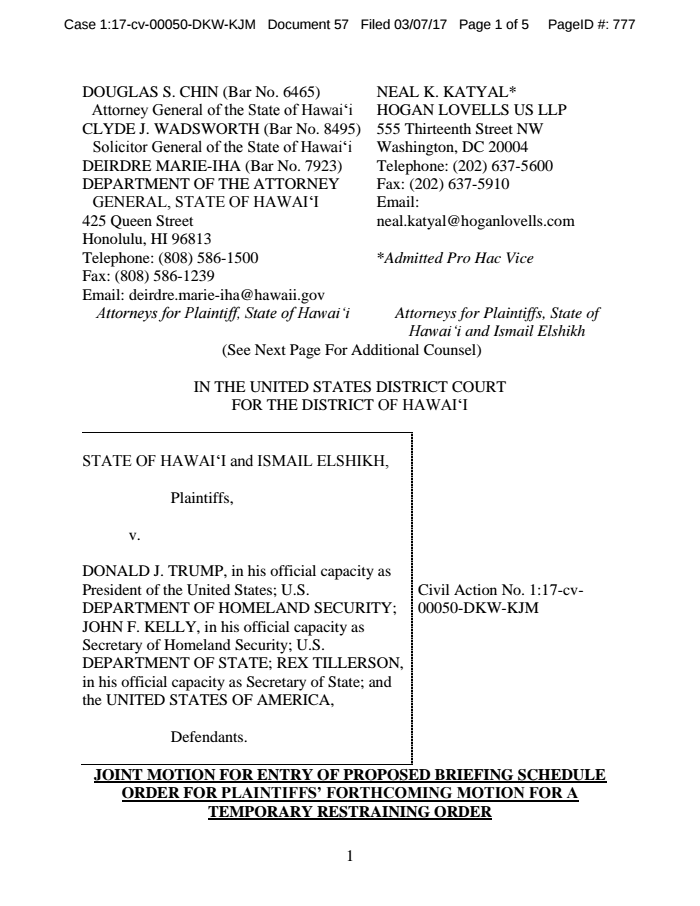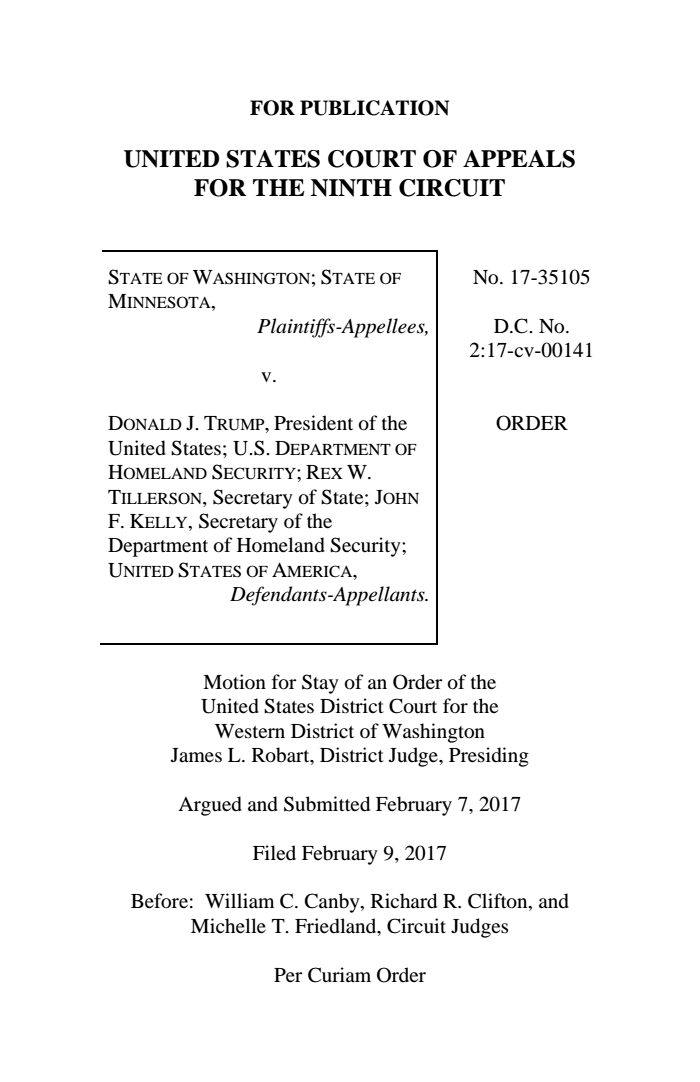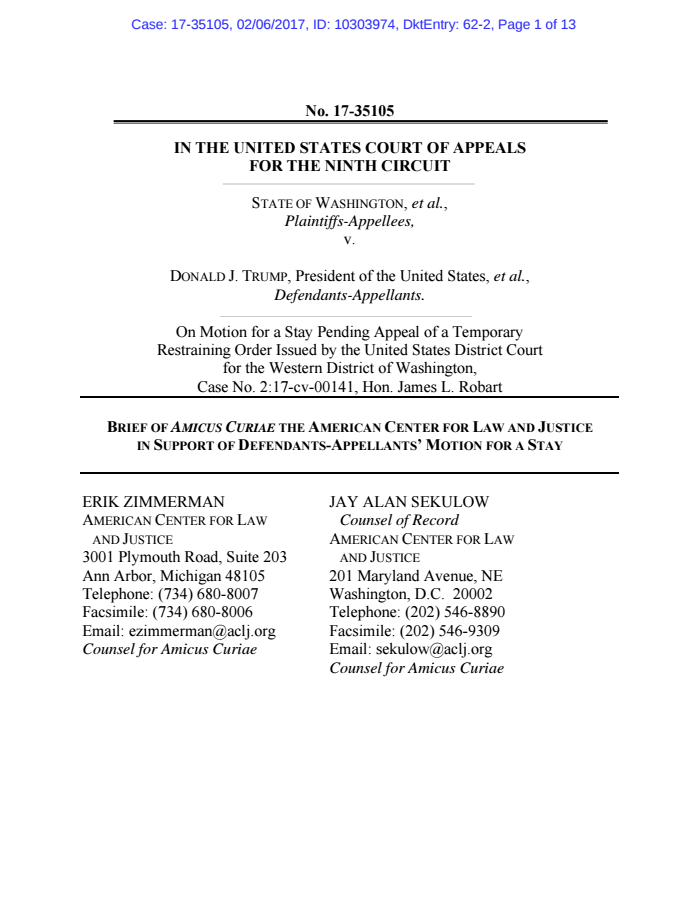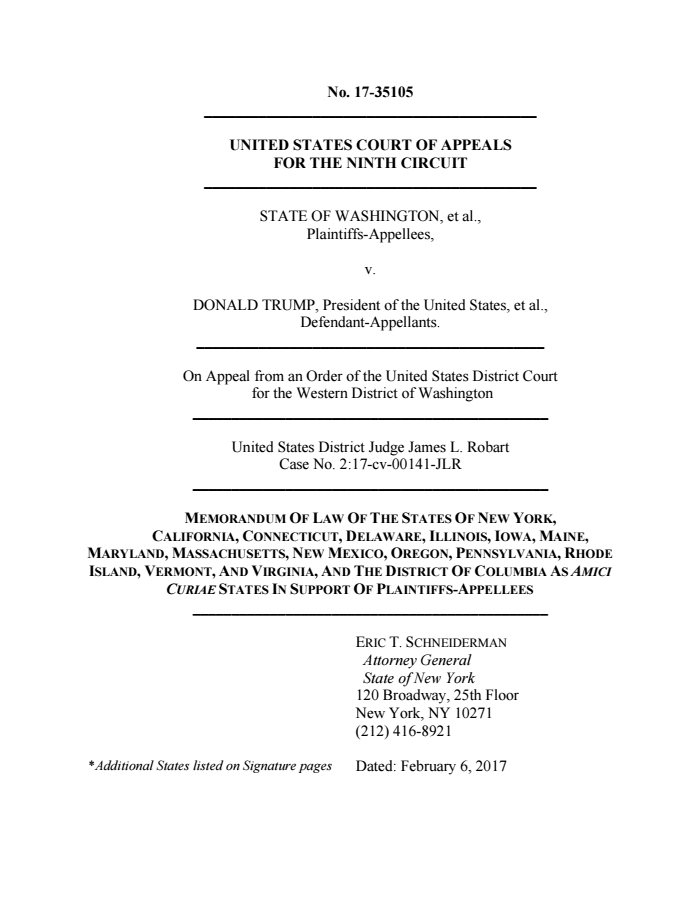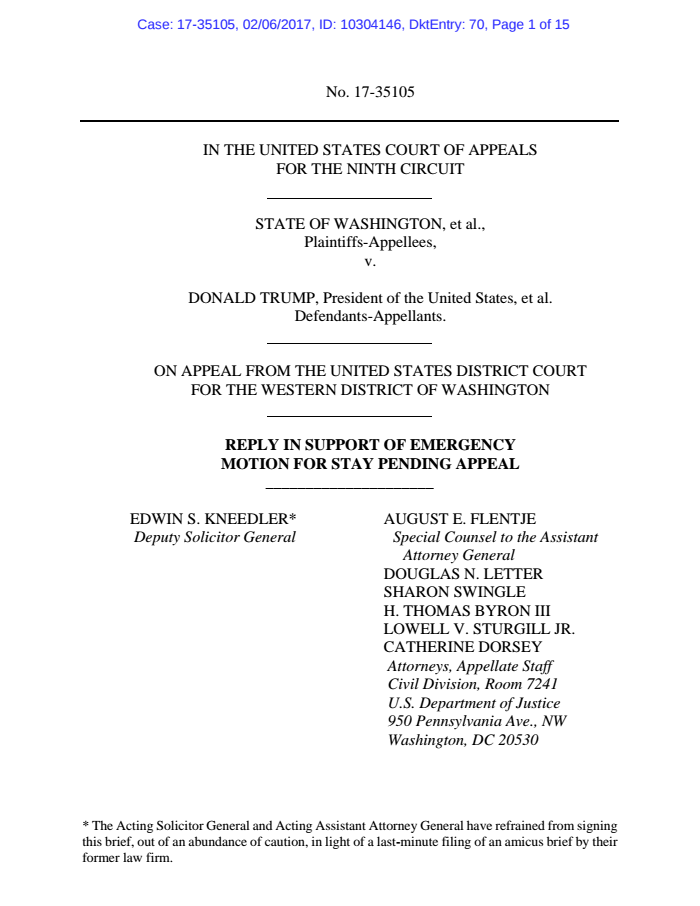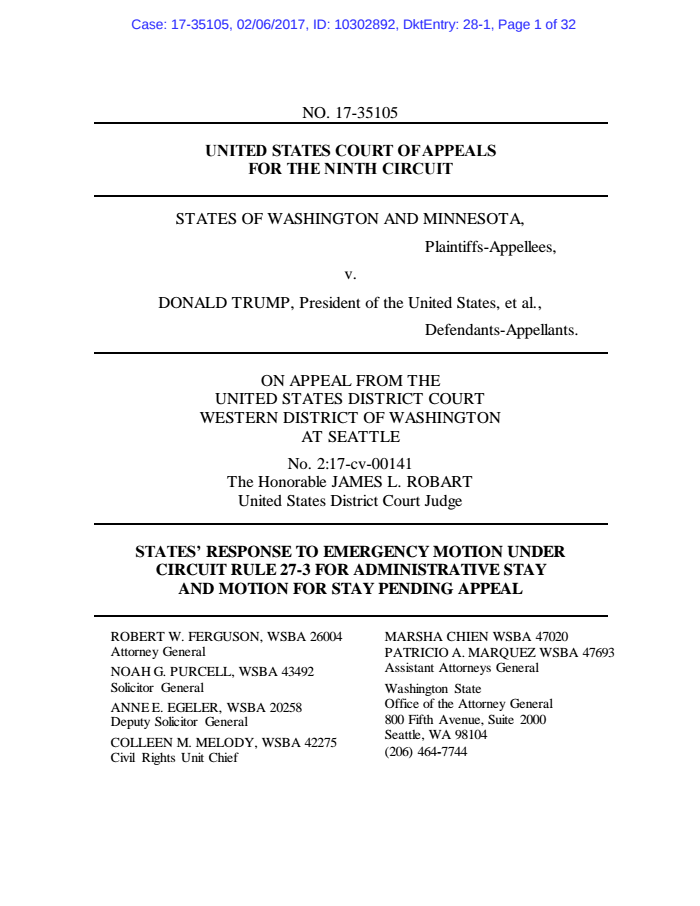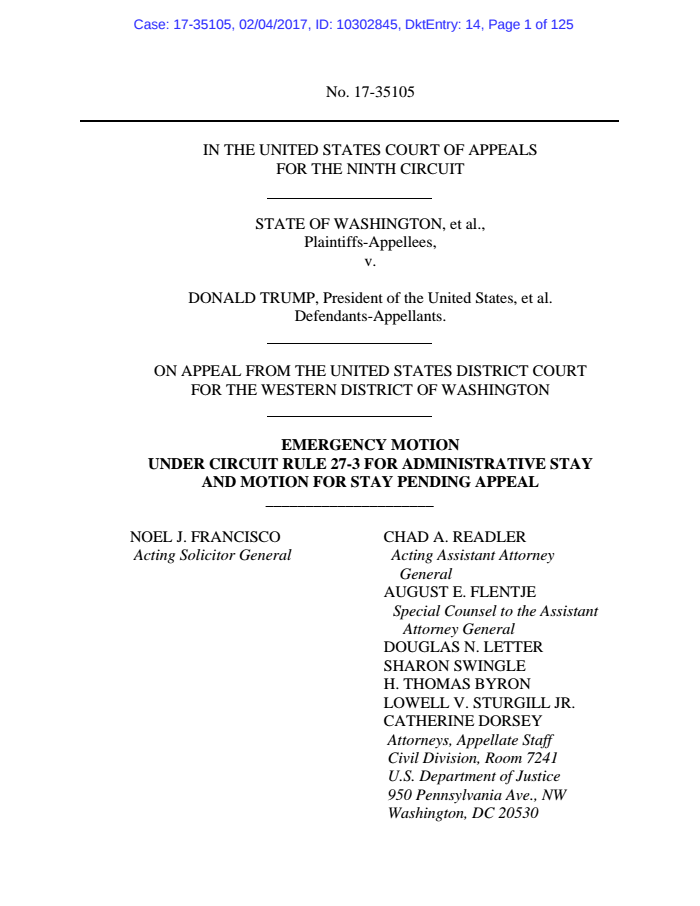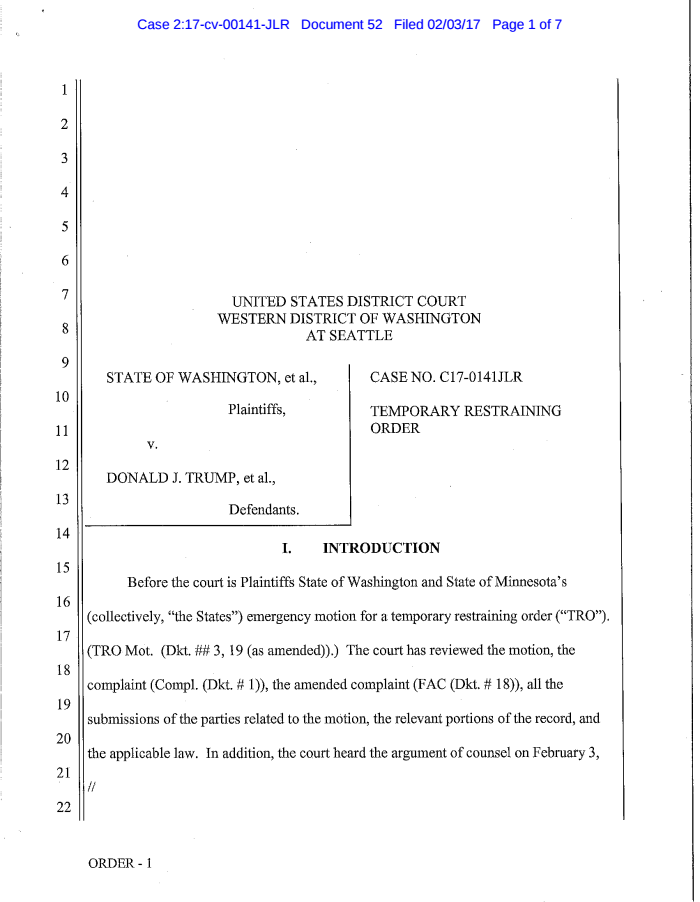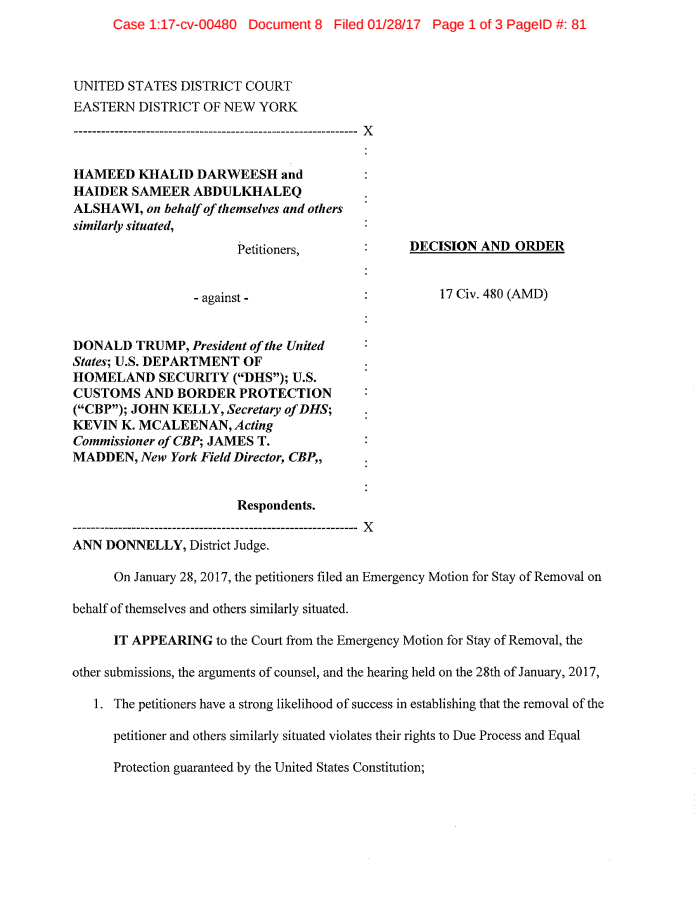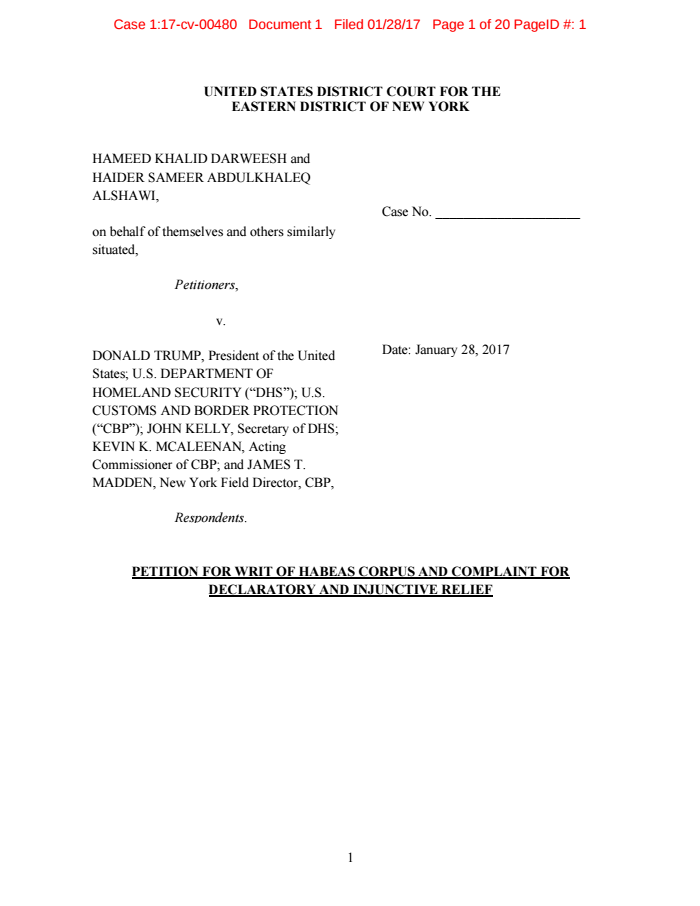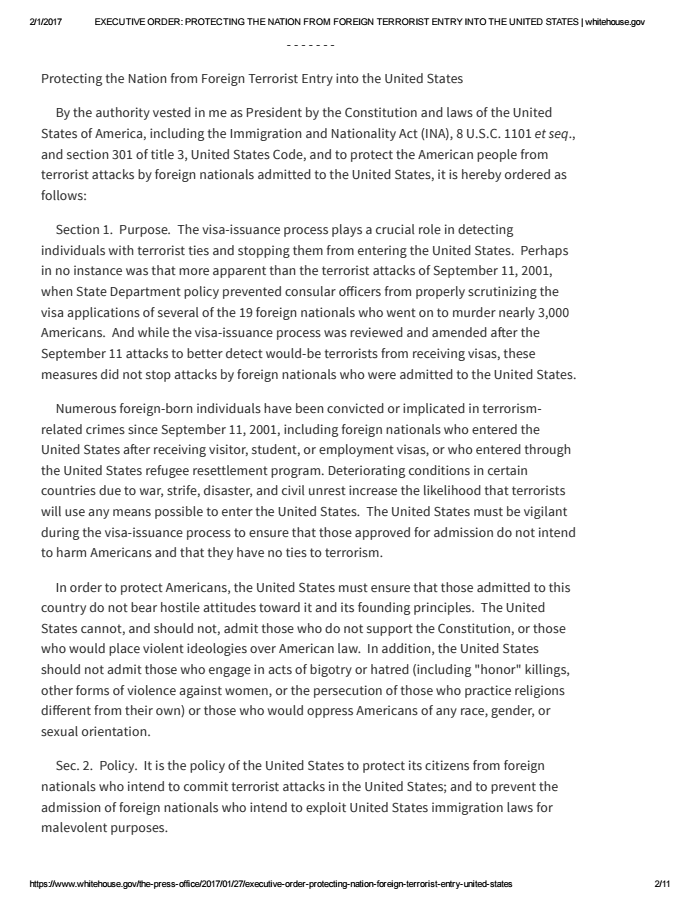The legal fight over Trump’s executive order
Since President Trump signed a sweeping executive order that temporarily banned entry for refugees, as well as other immigrants from seven mostly Muslim countries, dozens of lawsuits were filed against him amid widespread confusion over the new immigration rules.
Read the documents below and catch up on the twists and turns of the court cases and filings.
|
In a federal court filing on March 7, the state of Hawaii said it wants to challenge the new travel ban and ask for a temporary restraining order to stop it from going into effect on March 16. |
|
In a significant pushback from the judiciary, a federal appeals court decided Thursday to continue blocking enforcement of President Trump’s executive order barring travelers from seven predominantly Muslim nations from entering the U.S. “We hold that the Government has not shown a likelihood of success on the merits of its appeal, nor has it shown that failure to enter a stay would cause irreparable injury,” the panel of two Democratic ... |
|
California and 14 other states, along with the District of Columbia, joined the growing legal challenge to President Trump’s immigration orders, filing an amicus brief Monday supporting Washington state’s lawsuit that argues the directives targeting people from Muslim-majority countries are unconstitutional. Those joining California were Connecticut, Delaware, Illinois, Iowa, Maine, Maryland, Massachusetts, New Mexico, New York, Oregon, Pennsylvania, Rhode Island, Virginia, Vermont and the District of Columbia. |
|
Washington and Minnesota, which filed the initial lawsuit that led to a halt of the travel ban, filed this brief arguing against the Trump administration’s appeal. They argue that the restrictions on immigration for people from seven predominantly Muslim countries “unleashed chaos” and caused “extraordinary and irreparable harm … on our states and our people.” They specifically complain of damage to state university systems “by stranding our university students and ... |
|
This is an “amicus,” or friend of the court, brief filed by 97 leading technology companies, arguing against the Trump administration’s ban on travel for citizens of seven mostly Muslim countries. The companies comprise a who’s who of the Internet economy and include Apple, Microsoft, Google, Facebook, Twitter, Uber, Lyft, Airbnb, eBay, Netflix, Snap, Spotify and Yelp. They argue that the Court of Appeals should not grant the government an ... |
|
The Department of Justice filed an emergency motion late Saturday asking a federal appeals court to reinstate an executive order that suspended new arrivals from seven majority Muslim countries, a controversial program that sparked protests around the world. In a filing with the U.S. 9th Circuit Court of Appeals, federal attorneys requested an immediate stay of U.S. District Judge James Robart’s temporary restraining order Friday that suspended enforcement of the ... |
|
U.S. District Judge James Robart issued a temporary restraining order against President Donald Trump’s immigration restrictions on Friday, and signaled that the order applies to cases across the country. |
|
A federal judge in Brooklyn on January 28 night stayed deportations under President Trump’s executive order barring citizens of seven mostly Muslim countries from entering the United States. |
|
This is the executive order that ignited the firestorm. In it, President Trump argues that the United States is put at risk by admitting immigrants or visitors who might “bear hostile attitudes” toward the United States and its people. Although it never names the countries that pose a special threat, it cites sections of the Immigration and Nationality Act that apply to citizens of Iran, Iraq, Libya, Somalia, Sudan, Syria ... |
